#geek games
Text
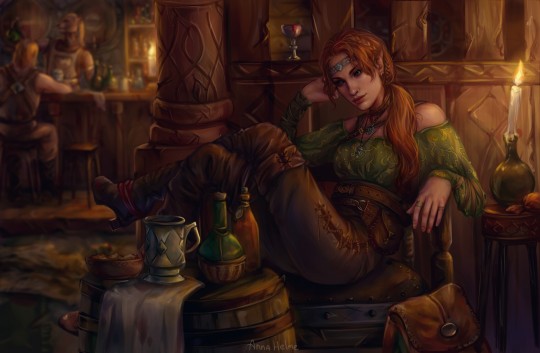
Bringing Your NPCs to Life: Tips for Creating A Believable Character Backstory in D&D
As a dungeon master, one of the most important parts of your job is creating believable and interesting NPCs (non-player characters) for your players to interact with. These NPCs can range from shopkeepers and guards to quest givers and powerful villains, and they play a crucial role in bringing your campaign world to life.
However, creating NPCs that feel real and relatable can be a challenging task. In this blog post, we'll be discussing some tips and tricks for creating believable NPCs in D&D. From giving NPCs a backstory to making them react realistically to the players, we'll show you how to make your NPCs feel like real, living people. So whether you're a seasoned dungeon master or just starting out, read on to learn how to create NPCs that will keep your players engaged and invested in your game.
Family and Relationships
Family and relationships are an essential element of an NPCs backstory and can give insight into their personality and motivations. For example, an NPC who has lost a loved one might be more likely to be driven by grief and a desire for revenge.
Family and relationships can also provide hooks for the players to interact with the NPCs, creating interesting and dynamic interactions. It can also create conflicts for the NPCs and the players, and the NPCs can have different types of relationship with the player characters like friends, enemies, mentors, allies, and more.
Additionally, NPCs can have complex relationships, for example, an NPC who has a love-hate relationship with one of the player characters. Knowing the NPCs family and relationships can also help the DM to create a believable dialogue, as NPCs can have different roles in the family or society and it can affect their actions and motivations.
Childhood Experiences
Another crucial component of an NPCs biography is their early life, which has the power to influence their personality, worldview, and moral principles. An NPC who was raised in poverty, for instance, might be more motivated by a desire for money and status. Childhood memories can also serve as springboards for the players to engage with the non-player characters (NPCs), resulting in engaging and dynamic interactions. The early experiences of the NPCs might influence their beliefs, values, and worldview, and it can also lead to disputes between them and the players.
In addition, NPCs early life experiences can affect their talents and aptitudes; for instance, an NPC who grew up in a conflict zone may be better at surviving and engaging in warfare. Additionally, it can affect how they feel and think. For instance, an NPC who experienced abuse as a youngster may struggle with trust or develop PTSD. As NPCs can have diverse perspectives on life and the world based on their experiences, knowing the NPCs early experiences can also aid the DM in crafting believable dialogue.
Education or Training
An NPCs education and training can give meaning to their talents and abilities and are a significant part of their narrative. Knowing what an NPC has studied or received training in might help determine their level of skill and knowledge. A skilled wizard NPC, for instance, may be more motivated by a quest for power and knowledge.
The players' interactions with the NPCs may be made more fascinating and dynamic by means of education and training. As the education and training of the NPCs may impact their views, values, and worldview, it can also lead to disputes between the NPCs and the players.
Additionally, NPCs education and training can shape their career and occupation, for example, an NPC who is a trained engineer might be more likely to be a successful inventor or architect. It can also shape their social status, for example, an NPC who has received a noble education might be more likely to be a member of the upper class. Knowing the NPCs education and training can also help the DM to create a believable dialogue, as NPCs can have different perspectives on life and the world based on their education and training.
Career or Occupation
An NPCs career or occupation can also play a role in shaping their backstory and provide context for their skills and abilities. Knowing what an NPC does for a living can give insight into their skills, abilities, and motivations. For example, an NPC who is a shopkeeper might be more likely to be driven by a desire for wealth and success. A career or occupation can also provide hooks for the players to interact with the NPCs, creating interesting and dynamic interactions. It can also create conflicts for the NPCs and the players, as the NPCs career or occupation can shape their beliefs, values, and how they perceive the world.
The NPCs career or occupation can shape their social status, for example, an NPC who is a noble might be more likely to be a member of the upper class. It can also shape their reputation, for example, an NPC who is a notorious thief might be feared or respected by other NPCs. Knowing the NPCs career or occupation can also help the DM to create a believable dialogue, as NPCs can have different perspectives on life and the world based on their career or occupation.
Life Events
Life events that shape an NPCs personality are also an important element of an NPCs backstory and can give insight into their personality, beliefs, and values. For example, an NPC who has experienced a traumatic event, like a war, might be more likely to be driven by a desire for peace and safety. Life events can also provide hooks for the players to interact with the NPCs, creating interesting and dynamic interactions. It can also create conflicts for the NPCs and the players, as the NPCs life events can shape their beliefs, values and how they perceive the world.
Additionally, NPCs life events can shape their skills and abilities, for example, an NPC who has been through a shipwreck might be more skilled in survival and navigation. It can also shape their emotional and mental state, for example, an NPC who has suffered a great loss might have trust issues or PTSD. Knowing the NPCs life events can also help the DM to create a believable dialogue, as NPCs can have different perspectives on life and the world based on their experiences.
In Summary
Giving your NPCs a backstory is an essential step in making them feel like real and relatable characters
A backstory provides context for an NPC's actions and motivations, making them more believable and interesting to the players
Family and relationships are an essential element of an NPC's backstory and can give insight into their personality and motivations
Childhood experiences are another important element of an NPC's backstory and can shape their personality, beliefs, and values
Education and training are an important element of an NPC's backstory and can provide context for their skills and abilities
An NPC's career or occupation can also play a role in shaping their backstory and provide context for their skills and abilities
Life events that shape an NPC's personality are also an important element of an NPC's backstory and can give insight into their personality, beliefs, and values
By including these elements in an NPC's backstory, you can create characters that feel real and relatable to your players
Additionally, it will help you to understand the motivations and actions of NPCs, making the game more interesting and dynamic
#geeklife#geeky stuff#geek culture#rpg ressources#rpg character#roleplaying ideas#dnd guide#dnd tips#dnd memes#dnd character#dungeons and dragons#dungeoncore#dungeon and dragons guide#dungeons and dragons tips and tricks#help guide#geek games#tabletop#dnd community#dungeon master#roleplaying games
106 notes
·
View notes
Text
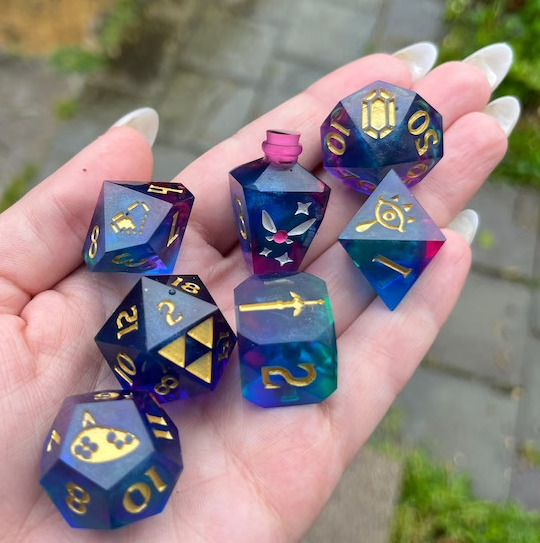
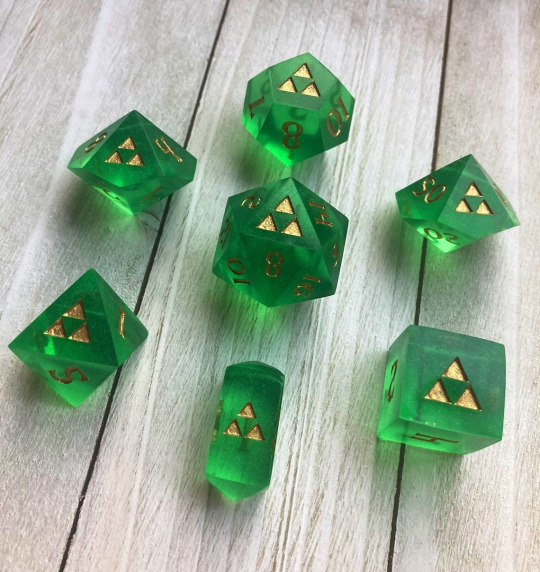
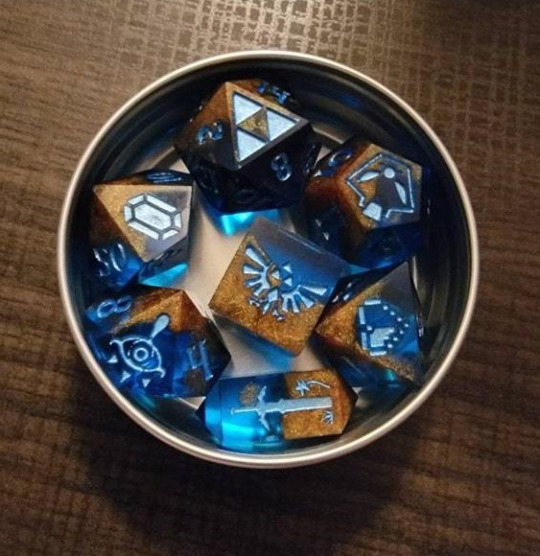

Legend of Zelda Dice Sets made by HardlightForge
#zelda#d&d#nintendo#gaming#video games#art#crafts#dice#d20#dungeons and dragons#tabletop#legend of zelda#tears of the kingdom#totk#breath of the wild#botw#switch#nintendo switch#boards games#geek#illustration#triforce#gifts#merch#retro#retrogaming#hyrule#loz
1K notes
·
View notes
Text
Arcane. Season 2. November 2024. #GeekedWeek
2K notes
·
View notes
Photo

Game on
2K notes
·
View notes
Text
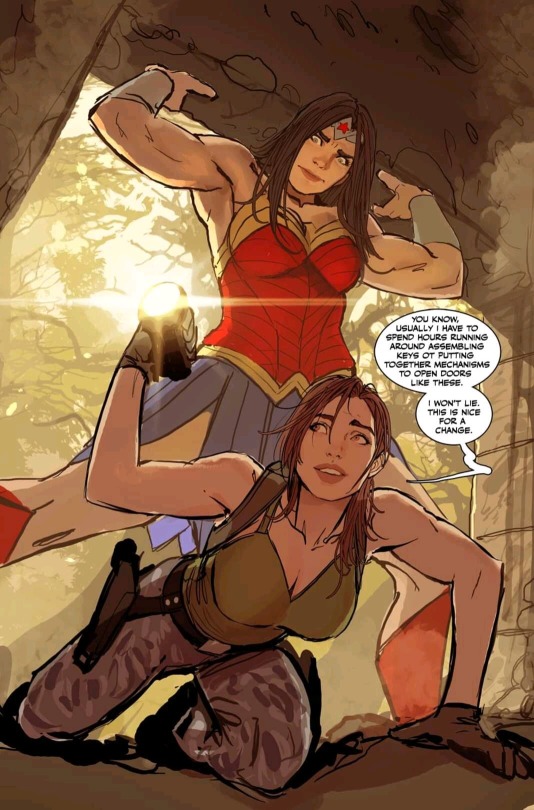
Wonder Woman x Lara Croft
#wonder woman#tomb raider#lara croft#nebezial#art#artwork#illustration#deviantart#comic books#video games#pop culture#dc#dc comics#playstation#gaming#geek culture#diana prince#superheroes#comics#women#crossover
2K notes
·
View notes
Text
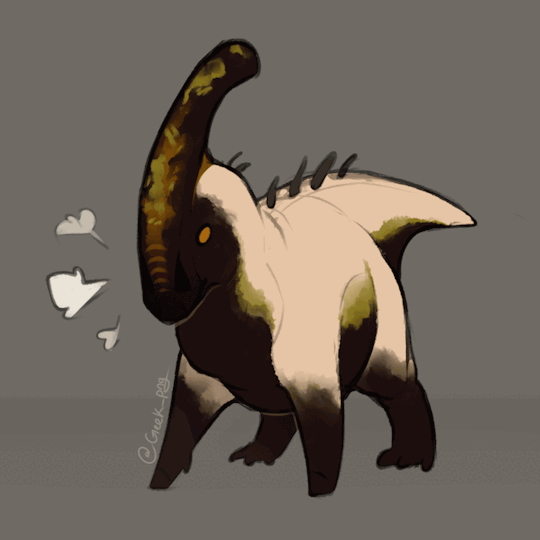
Another thing of Moss since people seemed to like the last ones-
#geeks art#geeks ocs#geeks stuff#paleoart#dinosaur game#beasts of bermuda#dinosaur#hadrosaur#parasaurolophus#geek png
2K notes
·
View notes
Text
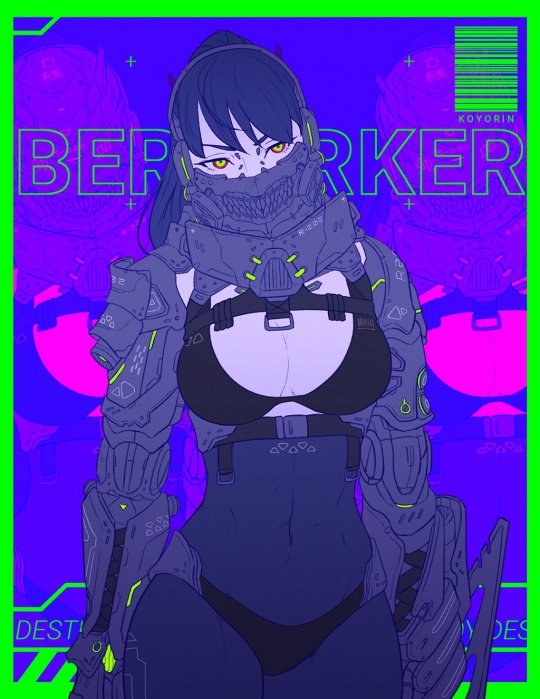
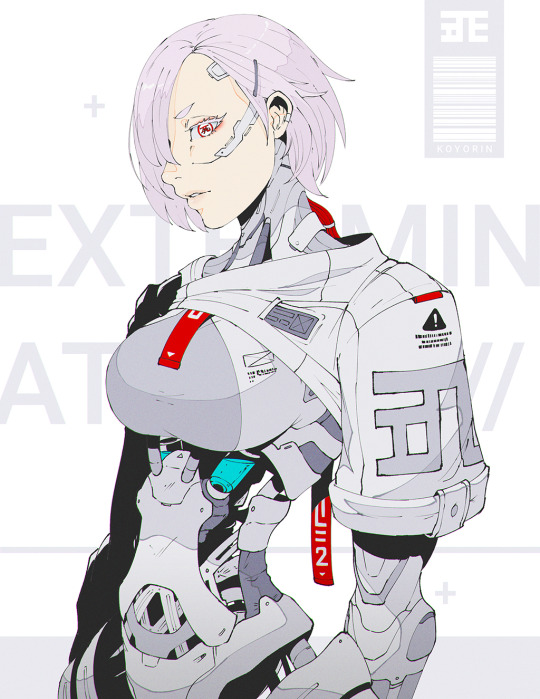







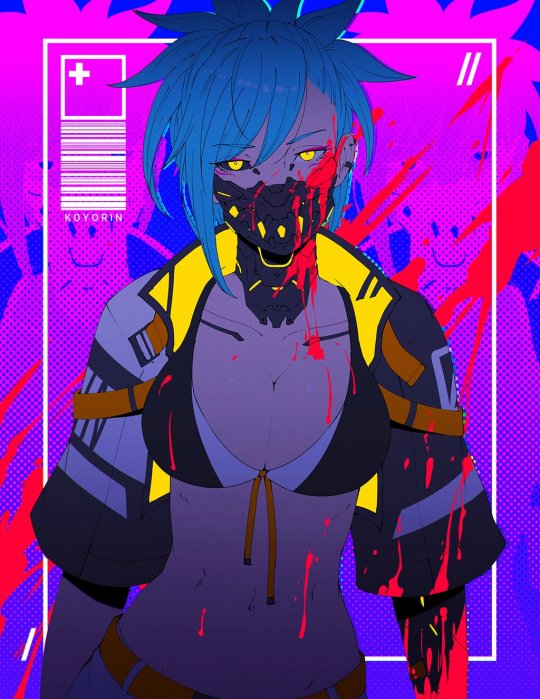
By @koyoriin
#nestedneons#cyberpunk#cyberpunk art#cyberpunk aesthetic#cyberpunk artist#art#cyberwave#scifi#scifi art#scifi girl#scifi games#scifi geek#biomech#android#biomechanoid#cyborg#biomechanical#armored core#neon art#neon aesthetic#neon colors#cyberpunk neon aesthetic#avatar art#game art
574 notes
·
View notes
Text
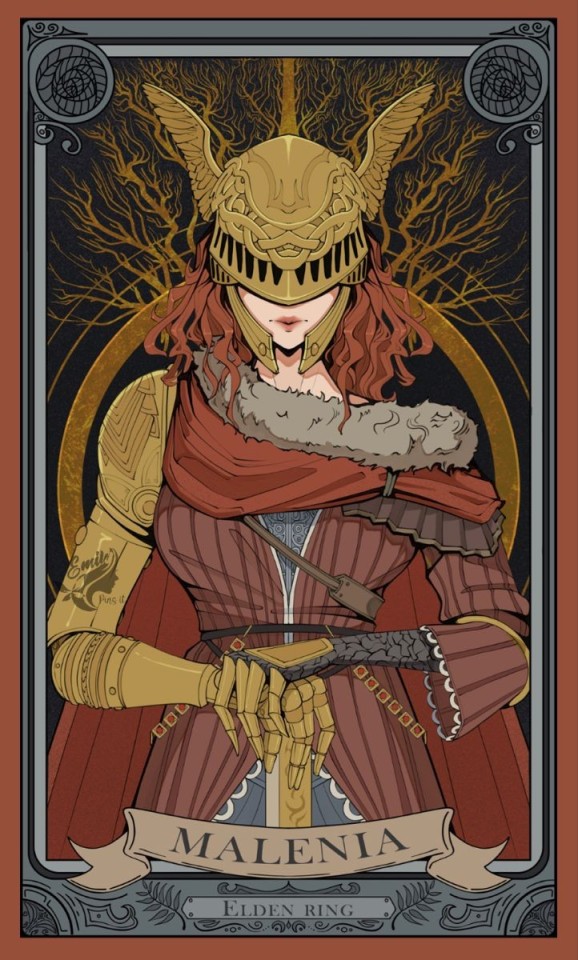
#elden ring#gamer#video games#ps5#anime#animated#fan art#gaming#ps4#playstation#games#geek#dark souls#dark souls 3#demon souls#baldur's gate 3
554 notes
·
View notes
Text





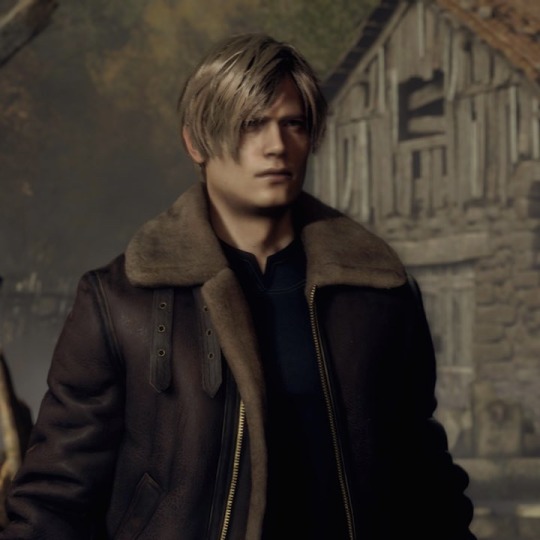



Leon.
#leon#resident evil#leon scott kennedy#leon kennedy#resident evil 4#game#resident evil 4 remake#icons#moodboard#leon icons#leon moodboard#resident evil icons#geek icons#alternative#aesthetic#geek#video games#re#re4#re4 remake#reviledit#gamingedit#reedit#re4r#re4r spoilers
1K notes
·
View notes
Text

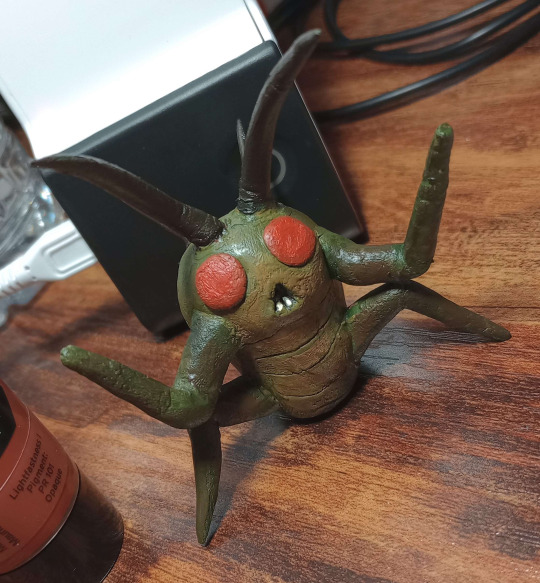

Been having a lot of fun playing funny co-op horror game as of late, so I made a clay loot bug + a doodle inspired from a friend.
#geek png#fanart#it only came out moderately janky but it fits the aesthetic#video game art#clay sculpting#lethal company#hoarding bug#loot bug#video game#lethal company art
320 notes
·
View notes
Text
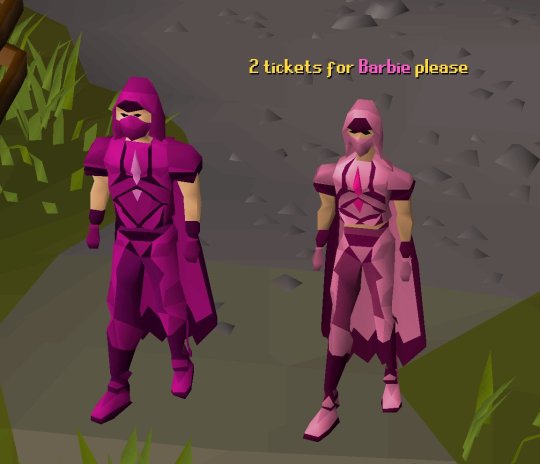
What movie sir?
#runescape#oldschool#osrs gold#osrs#jagex#gamer art#geeks + gamers#gamerlife#mmorpg#gaming pc#zamorak#saradomin#bandos#zaros#edit#fan edit#art#cool#lol#rpg#fan art#pc games#barbie film#barbie 2023#the barbie movie#pink#barbie
649 notes
·
View notes
Text
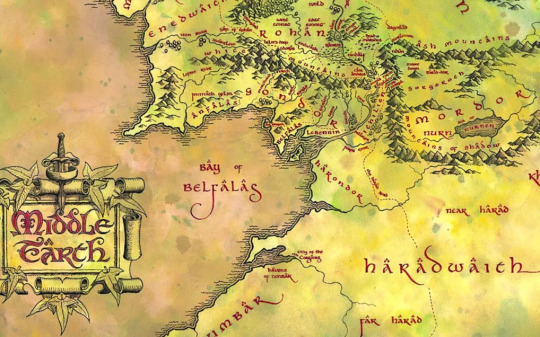
Building a Legendary Dungeons and Dragons Campaign: A Guide to Worldbuilding and Adventure Writing
Creating a compelling and immersive world is a crucial part of playing Dungeons & Dragons. As the Dungeon Master, it's your job to bring your world to life and make it feel like a real place that your players can explore and interact with. Here are some tips for building a world that will captivate your players:
This may be quite a long list so we advise you to grab a pen and paper to jot down any information that you find relevant.
Start with a Concept
Start with a central conflict: A great way to create a compelling concept for your D&D world is to start with a central conflict. Think about the main struggle or tension that exists in your world, and how it affects different characters and factions. This conflict can be anything from a war between kingdoms to a struggle between good and evil.
Consider the scope of your world: Before you start creating your world, it's important to consider the scope of your project. Are you creating a small region or a vast continent? Are you focusing on a single city or exploring an entire world? Understanding the scope of your project can help you create a concept that is manageable and focused.
Incorporate player input: Your players are going to be the ones exploring and interacting with your world, so it's important to incorporate their input into your concept. Ask them what kind of world they want to explore and what themes and tone they are interested in. This can help you create a concept that is tailored to their interests and preferences.
Use inspiration from other media: If you're struggling to come up with a concept for your world, don't be afraid to draw inspiration from other media. Books, movies, and TV shows can provide great inspiration for your world, as can real-world history and mythology.
Focus on unique elements: Finally, when creating your concept, focus on unique elements that will set your world apart. Think about what makes your world different from other D&D settings, and incorporate those elements into your concept. This can help your world stand out and provide a fresh experience for your players.
Create A Map
Start with a basic outline: Begin by sketching a basic outline of your world. This can include continents, oceans, and major landforms.
Add details: Once you have a basic outline, start adding details such as mountain ranges, rivers, and forests. Think about how the geography of your world affects the climate and resources of each region.
Consider the cultures: Think about the different cultures and civilizations that exist in your world, and how they relate to each other. Consider their languages, religions, and customs.
Create landmarks: Create unique landmarks such as ancient ruins, magical towers, and important cities. These landmarks can serve as points of interest for your players to explore.
Add labels: Once you have created your map, add labels for different regions, cities, and landmarks. This will help your players navigate your world and understand its geography.
Populate Your World
Create different races and cultures: Populate your world with different races and cultures, each with their own unique customs, languages, and history. Think about how these races and cultures interact with each other and the impact they have on the world.
Develop unique characters: Populate your world with unique and interesting characters, both good and bad. Think about their personalities, motivations, and how they fit into the world.
Create organizations and factions: Create different organizations and factions that exist within your world, such as political parties, religious groups, and guilds. Think about their goals, methods, and how they interact with each other.
Add supernatural elements: D&D is a fantasy game, so don't be afraid to add supernatural elements to your world. This can include magic, mythical creatures, and powerful artifacts.
Create A History
Consider history and lore: Populate your world with a rich history and lore. Think about important events and figures from the past, and how they have shaped the world your players are exploring
Incorporate player backstories: Consider incorporating the backstories of your players' characters into the world. This can help make the world feel more personal and relevant to the players.
Start with a timeline: Begin by creating a timeline of major events in your world's history. Think about important battles, wars, and alliances, as well as significant cultural and technological developments.
Consider cause and effect: Think about how different events in your world's history have impacted the present. Consider cause and effect relationships, such as how a major war may have led to the rise of a new empire.
Incorporate mythology and legends: Incorporate mythical elements into your world's history. Create legends and myths that explain the origins of your world and its inhabitants.
Add complexity: Avoid creating a simple, black-and-white history for your world. Instead, add complexity and nuance by including different perspectives and motivations. This can make your world feel more realistic and interesting.
Create significant figures: Create significant figures from your world's history, such as legendary heroes, conquerors, or religious figures. Think about how their actions and beliefs have shaped your world's history.
Incorporate player backstories: Consider incorporating the backstories of your players' characters into your world's history. This can help make the world feel more personal and relevant to the players.
Use real-world history as inspiration: Draw inspiration from real-world history when creating your world's history. This can help make your world feel more grounded and believable.
Add Magic & Monsters
Create a magic system: When adding magic to your world, create a system that explains how magic works. Consider the limitations and costs of magic, and how different spells and abilities are learned and cast.
Add magical creatures: Populate your world with magical creatures such as dragons, unicorns, and griffins. Consider their origins, behavior, and how they fit into your world's ecology and mythology.
Consider the origins of magic: Think about where magic comes from in your world. Is it a natural force, or does it come from a specific deity or source?
Create magical artifacts: Create powerful magical artifacts for your players to discover and use. Consider their history, powers, and the consequences of using them.
Create magical locations: Create magical locations such as enchanted forests, ancient ruins, and hidden temples. Consider the history and purpose of these locations, and the dangers that may lurk within them.
Use existing lore and mythology: Draw inspiration from existing lore and mythology when creating magic and monsters for your world. This can help make your world feel more grounded and believable.
Write Adventures
Create clear objectives: When writing an adventure, create clear objectives for your players to achieve. Think about what the players need to do to complete the adventure and what obstacles they will face along the way.
Develop interesting NPCs: Populate your adventure with interesting non-player characters (NPCs) that your players can interact with. Consider their motivations, personalities, and how they fit into the story.
Include puzzles and challenges: Add puzzles and challenges to your adventure to keep your players engaged and interested. These can be riddles, traps, or obstacles that the players need to overcome.
Add twists and turns: Keep your players on their toes by adding unexpected twists and turns to your adventure. This can include betrayals, unexpected enemies, or sudden plot twists.
Create memorable moments: Create memorable moments that your players will remember long after the adventure is over. This can include dramatic battles, emotional scenes, or epic encounters with powerful monsters.
Consider player agency: Give your players agency in the adventure by allowing them to make meaningful choices that impact the story. This can include different paths to achieve objectives, or moral choices that impact the outcome of the adventure.
Keep it flexible: While it's important to have a clear objective for your adventure, be flexible in how the players achieve that objective. Allow the players to come up with creative solutions and don't be afraid to improvise if necessary.
Conclusion
In conclusion, worldbuilding and adventure writing are essential components of creating a memorable and engaging Dungeons and Dragons campaign. By taking the time to create a detailed world, populate it with interesting characters and creatures, and craft engaging adventures, you can create an immersive experience for your players that will keep them coming back for more.
Remember to be flexible and open to the unexpected, as player agency and creativity are key to a successful campaign. By following these tips and exploring more resources on our Tumblr blog, you can hone your skills as a Dungeon Master and create unforgettable gaming experiences.
And if you're looking for even more ways to express your love for Dungeons and Dragons, don't forget to check out our Etsy store "thatsgeeky" for a wide range of D&D-themed merch.
#geeklife#geeky stuff#geek culture#rpg ressources#rpg character#roleplaying ideas#dnd guide#dnd tips#dnd memes#dnd character#dungeons and dragons#dungeoncore#dungeon and dragons guide#dungeons and dragons tips and tricks#help guide#geek games#tabletop#dnd community#dungeon master#roleplaying games
33 notes
·
View notes
Text






Nintendo controllers under an X-ray machine
#nintendo#switch#wii#gamecube#n64#snes#super nintendo#nes#xray#science#geek#gaming#tech#video games#nintendo switch#pokemon#mario#zelda#animal crossing#metroid#nintendo 64#90s#retro#nostalgia#retrogaming
2K notes
·
View notes
Text

#curvy blonde#curvy and beautiful#curvy and cute#curvy chicks#curvybeauty#thick and juicy#blond girl#curvy#curvy af#thickaf#gaming#gamer gf#cute egirl#egirl aesthetic#sexy egirl#hot egirls#egirl#egirl noods#nerdy chicks#hot nerd#nerdy stuff#nerdy girls#sexy nerd#gamer girl#gamerlife#girl gamer#gamergirl#geeky girls#sexy geek#hot geek
232 notes
·
View notes
Text


Just a girly with her PlayStation pajama and Pikachu plushie 🤓
#nerdy babe#nerdy chicks#nerdy girls#sexy nerd#nerdy stuff#sexy geek#hot geek#geek#gamerlife#girl gamer#gamergirl#gamer#video games#gamer girl#gamer gf#tattooed girls#tatted up#tattooed women#tattoo#tattoos#tattoed girls#sexy tattoed women#girls with tattoos#tattoed babe#tattoed hottie#inked and curvy#inked cutie#inked girls#inkedandsexy#leahvonnoire
148 notes
·
View notes
Text
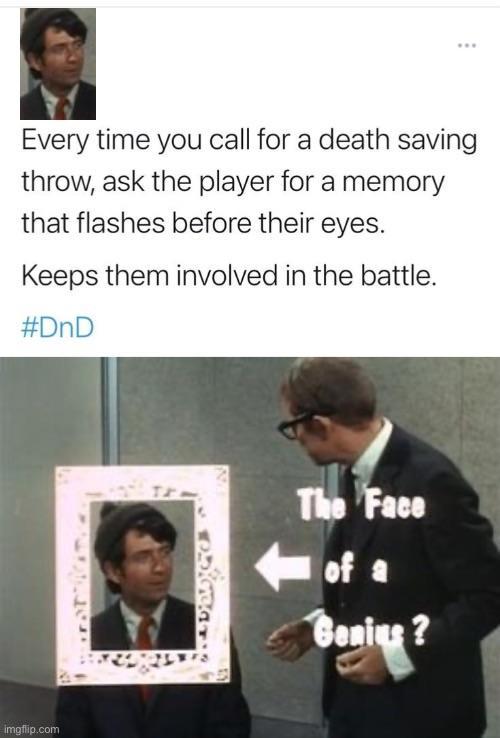
Oooooo...I like this!
JeromyTV does something like this on SpellShots but since my character has amnesia we learn a little bit more about Key's past whenever they're near death (which ends up being quite a bit)!
#dungeons & dragons#d&d#d&d 5e#dnd#dnd 5e#ttrpg#spell shots#spellshots#new age geeks#key#tabletop roleplaying games#d&d memes#dnd memes#memes#meme#funny#lol#good ideas#death saving throws
352 notes
·
View notes